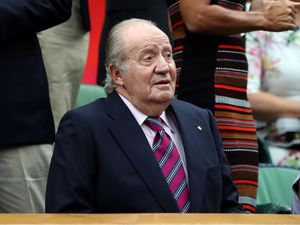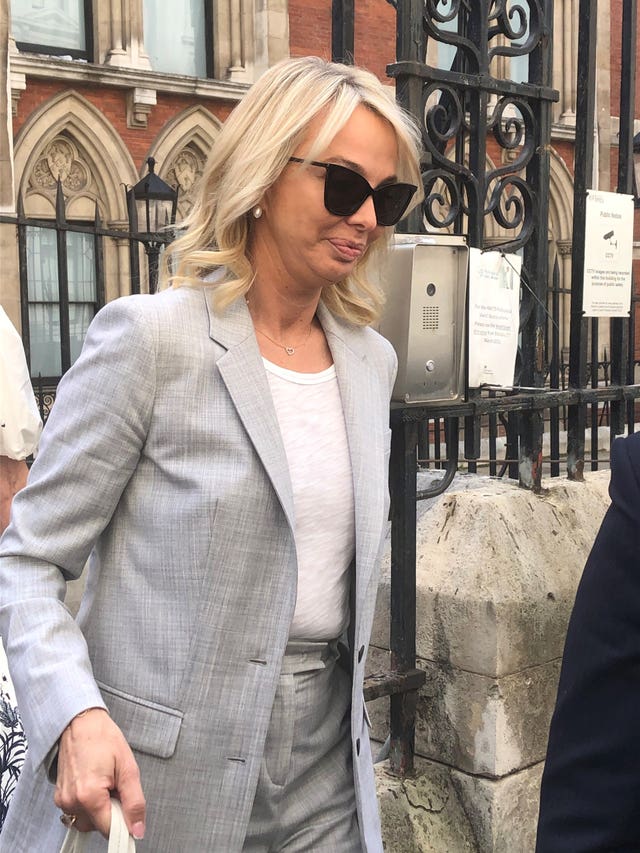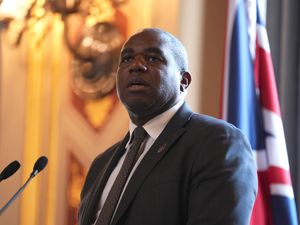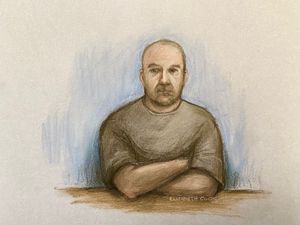Former Spanish king’s ex-lover ‘says intruders left book about Diana’s death’
Corinna zu Sayn-Wittgenstein-Sayn, who is suing Juan Carlos, alleged ‘an operation’ by Spanish intelligence agents, an appeal hearing has been told.

An ex-lover of a former king of Spain alleged that “intruders” left a book about the “involvement of the British and US intelligence agencies” in the death of the late Diana, Princess of Wales, at her apartment, appeal judges have been told.
Businesswoman Corinna zu Sayn-Wittgenstein-Sayn, who is taking legal action against Juan Carlos, alleged “an operation” by Spanish intelligence agents at her apartment in Switzerland, a Court of Appeal hearing in London heard on Tuesday.
She also alleged that she received a “follow-up telephone call” from an “unknown person” who made an “allusion” to the manner in which Diana died, a barrister representing Juan Carlos said.
Juan Carlos, 84, who abdicated in 2014, has begun an appeal bid after losing a High Court fight with Ms zu Sayn-Wittgenstein-Sayn, 57.
Ms zu Sayn-Wittgenstein-Sayn is taking legal action against Juan Carlos, seeking damages for personal injury.

She alleges he caused her “great mental pain” by spying on and harassing her.
Juan Carlos denies wrongdoing and disputes the claims made against him.
Lawyers representing Juan Carlos had argued that he was “entitled to immunity from the jurisdiction of the English courts in his capacity as a senior member of the Spanish royal family”.
But a High Court judge disagreed.
Mr Justice Nicklin ruled earlier this year that the claim could go ahead in England.
Three appeal judges – Lady Justice King, Lady Justice Simler and Lord Justice Popplewell – began considering a challenge by Juan Carlos to some of the conclusions reached by Mr Justice Nicklin, at a Court of Appeal hearing in London on Tuesday.
Barrister Timothy Otty KC, told the judges that one allegation made by Ms zu Sayn-Wittgenstein-Sayn was that papers in her apartment in Villars, Switzerland, had been disturbed.
He suggested that the “inference” was that “this operation” was carried out by “Spanish intelligence agents”.
Mr Otty said particulars of the claim alleged an “operation” by the Spanish intelligence agency, the CNI, to “enter” Ms zu Sayn-Wittgenstein-Sayn’s apartment in Switzerland to “threaten” her.
“It is alleged that the (her) ‘papers had been disturbed within her apartment’ in Villars,” he said in a written argument.
“It is alleged that a book was left by the intruders on the topic of the involvement of the British and US intelligence agencies in the death of Princess Diana.
“It is further alleged that (Ms zu Sayn-Wittgenstein-Sayn) received a follow-up telephone call in Switzerland from an unknown person speaking Spanish who informed her that ‘there are many tunnels between Monaco and Nice’ – ie, an allusion to the manner in which Princess Diana was killed – as a result of a car crash in the Pont de l’Alma tunnel in Paris, which the book left by the intruders had identified as being at the hands of intelligence services.”
Mr Otty said Juan Carlos emphasised that he considered Ms zu Sayn-Wittgenstein-Sayn’s legal action to be “vexatious”.
“He emphatically denies that he engaged in, or directed, any harassment of the (Ms zu Sayn-Wittgenstein-Sayn) whatever, and he rejects her allegations to the contrary as untrue and inconsistent with previous public statements made by her.
“The allegations also involve an alleged abuse of power wholly inconsistent with his majesty’s important role in the transition of Spain to a successful parliamentary democracy and his long period of service as sovereign.”
Judges have heard that Juan Carlos ruled from 1975 until his abdication in 2014, and the succession of his son, King Felipe VI.
They have been told that Ms zu Sayn-Wittgenstein-Sayn, who lives in England and has a home in Shropshire, wants an “injunction and damages” resulting from “a continuous and ongoing campaign of harassment” against her, “commenced” by (Juan Carlos) from 2012, following the “break-up of an intimate romantic relationship” and her “refusal to let (Juan Carlos) use a financial sum irrevocably gifted to her, or to return other gifts”.
Lawyers representing her have alleged to judges that conduct “includes (the former king) or his agents smearing her and her business in the media, following her, entering her home in Shropshire, and bugging her homes and electronic devices”.
Mr Justice Nicklin rejected the argument that, despite his abdication, Juan Carlos remains a “sovereign” and is entitled to personal immunity under the State Immunity Act 1978.
He also said Juan Carlos is not a member of the current king’s household within the meaning of that Act.
Mr Justice Nicklin said the former king’s position under the Spanish constitution is “entirely honorary” and provides him “no continuing role”.
Barrister James Lewis KC, who is leading Ms zu Sayn-Wittgenstein-Sayn’s legal team, told the three appeal judges that Juan Carlos’s challenge should be dismissed.
“The issue raised in this appeal is whether (Juan Carlos) is entitled to state immunity in respect of those elements of (Ms zu Sayn-Wittgenstein-Sayn’s) claim for harassment that pre-date his abdication on 18 June 2014,” he said in a written case outline.
“These acts include those of (Juan Carlos’s) loyal friends with intelligence and surveillance agents as his agents.”
He added: “(Ms zu Sayn-Wittgenstein-Sayn’s) case against (Juan Carlos) in relation to post-abdication allegations of harassment is currently stayed pending determination of this appeal.”
Mr Lewis said Juan Carlos had interpreted the Villars apartment issue “incorrectly”.
He said Ms zu Sayn-Wittgenstein-Sayn’s claim referred to “veiled threats” made to her at her home in Villars.
“No mention is made of CNI, but (Juan Carlos) interprets this … incorrectly as an allegation of an operation ‘by the CNI’,” he said.
“… these were covert matters, (Ms zu Sayn-Wittgenstein-Sayn) was not told transparently what had taken place and by whom.”
He said it was alleged that Juan Carlos had “employed commercial operatives”.





